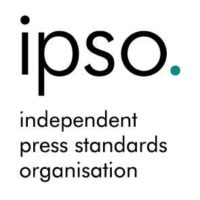By Gabriel Princewill-
A secretary accused of stealing around £39,000 from the school she worked lost her complaint against a regional daily’s newspaper.
Sharon Dickinson lodged a complaint to the Independent Press Standards Organisation after the Northern Echo published a photo of her outside court alongside two articles.
Ms Dickinson complained to the press regulator that the picture was intrusive because it was taken without her permission.Ms Dickinson is due to stand trial later this year. The secretary is accused of stealing around £39,000 from a primary school were she worked over a duration of seven years.She has pleaded not guilty to fraud by abuse of position, but the huge amount involved naturally attracts media interest.
The paper accurately reported that the complainant faced two charges of fraud by abuse of position and theft by employee. The paper added that Ms Dickinson had entered no plea, and that she had been granted unconditional bail.
IGNORANCE
Ms Dickinson also accused the paper of harassment, blissfully ignorant that harassment has a legal definition under the Harassment Act 1997. Her allegation that the photographer ran towards her on the path outside the court and continually tried to take photographs of her does not fall under the requirement for ‘ alarm’ and ‘distress’. She said she had a coat covering her face, and told him several times that she did not want her photograph taken. Her mistake was that photographers do not need the permission of individuals to take their photo, especially in a public place, and where there is a public interest.
As a defendant in a fraud case, she has no right to privacy, although there are those who argue that a defendant should not be exposed until she is convicted in a court of law. This argument remains contentious, but the law nevertheless permits photographers or even members of the public to photograph others in public places. In the absence of a legitimate purpose, it could be problematic.
Ms Dickinson was also complained that the story included her name and address- a conventional practise with the court that is permissible.
NO PRIVACY
The Northern Echo said Ms Dickinson could have had no reasonable expectation of privacy because of the open nature of the hearing. The photographer asserted he was waiting outside the court next to a bin on a public footpath when she came around the corner and covered her face straight away.
He took her photograph as she came towards him, and said he did not move from the bin or hear Ms Dickinson say anything to him. Even if the photographer hear her voice her objections, he would not have been obliged to consider her feelings.
IPSO acknowledged that Ms Dickinson’s account of her encounter differed to that offered by the Echo, but found that the photographer’s actions did not amount to harassment in any case.
The photo was taken in a public place outside a court building and it only showed Ms Dickinson’s partially obscured likeness. The press regulator also found that Echo was entitled to report her name and address because they were heard in open court. Journalists are allowed to report the address of defendants heard in open court, but there is case for this conventional practise in the media to be reviewed, particularly prior to conviction. That’s all theoretical, because journalists sometimes have access to the facts of a case, and can speculate on the outcome.
The long and short of it, was that Ms Dickinson was found to have no case, and she must now focus her attention on pursuing an acquittal if she truly believes the case against her is premised on erroneous grounds.

